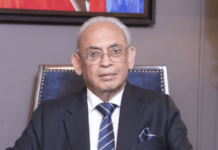Market regulator SEBI has banned Subhash Chandra, chairman of Essel Group and Punit Goenka, Chief Executive Officer (CEO) of Zee Entertainment Enterprises Ltd. (ZEEL) from holding a directorship or Key Managerial Personnel post in any listed company or its subsidiaries until further orders. SEBI’s directions come after the regulator found that Subhash Chandra and Punit Goenka had siphoned off funds for their own benefits from their listed company, ZEEL.
The interim order is likely to be challenged by the promoters. It has come as a big embarrassment for the company when it is seeking regulatory approvals for a merger with Sony Pictures Networks India. SEBI has asked ZEEL to place this direction before its board of directors within seven days from the date of receipt. The regulator has given both, Subhash Chandra and Punit Goenka, 21 days to file their reply or objections, if any, in the case.
An interim order is generally issued by SEBI when there is prima facie evidence of wrongdoing. Both, Chandra and Goenka, came under SEBI’s radar after the resignation of two independent directors of ZEEL — Sunil Kumar and Neharika Vohra — from the board in 2019, citing various concerns including the appropriation of fixed deposits of ZEEL by Yes Bank. The resignation prompted SEBI to initiate a probe into the matter. In her resignation letter, Neharika Vohra said, “At the October 17, 2019 meeting it was brought to light via a letter received by the board from the concerned bank that guarantees have been given to a subsidiary without approval from the board. The operating team treated the issue very casually.”
According to the SEBI order, Subhash Chandra had provided a letter of comfort (LoC) for a Rs. 200 crore loan to Essel Group Mobility. The probe revealed that Subhash Chandra gave this LOC without obtaining board approval for the same.
“The above facts make out a prima facie case of Subhash Chandra and Punit Goenka having abused their position as directors/Key Management Personnel of a listed company for siphoning off funds for their own benefit,” said a whole-time member of SEBI in the 16-page order.
In the LoC, it was said, “This is with regards to the Rs. 200 crore loan outstanding in Essel Green Mobility from Yes Bank. We will ensure that a fixed deposit of at least Rs. 200 crore is available with Yes Bank, from any one of Essel Group of companies (including Zee Entertainment), at all times whilst the said facility remains due and outstanding and that in the event of default under the said facility, you may appropriate the fixed deposit towards repayment of the said facility.”
SEBI revealed that from Vohra’s resignation letter to the chairman of the board of directors of ZEEL, it was observed that the LoC was known only to a few persons in management and even the board of ZEEL was not aware of the same. Due to the LoC, Yes Bank had adjusted a fixed deposit of Rs. 200 crore of ZEEL for meeting the obligations of seven entities, which are called “Associate Entities”, towards the bank.
These Associate Entities are Pan India Infraprojects, Essel Green Mobility, Essel Corporate Resources, Essel Utilities Distribution Company, Essel Business Excellence Services, Pan India Network Infravest, and Living Entertainment Enterprises.
SEBI observed that these seven associate entities were owned by family members of Subhash Chandra and Punit Goenka (Promoter Family). The promoter family is also the beneficial owner of promoters of ZEEL.
Also, in the annual report of ZEEL for the financial year 2019-20, these associate entities were mentioned as companies controlled by key management personnel (“KMPs”) and their relatives. The KMPs included Subhash Chandra and Punit Goenka.
When probed by SEBI, ZEEL submitted to the market regulator that Rs. 200 crore, equivalent to the value of FD which was encashed by Yes Bank for the dues from Associate Entities owned by promoter family, had subsequently been received back from those Associate Entities in September/October 2019.
But ZEEL confirmed that Chandra and Goenka had signed the LoC without informing, consulting, and/or approval of ZEEL or its board members — which had violated SEBI’s obligations and disclosure requirements regulations.
SEBI then initiated adjudication proceedings against ZEEL, Subhash Chandra and Punit Geonka. After examining the bank statements of ZEEL, SEBI found that although ZEEL claimed to have received Rs. 200 crore from these associate entities of promoters — a major portion of the said funds had actually originated from either ZEEL itself or the listed companies of Essel Group. The funds had followed a circuitous route! This implies that the funds had originated from ZEEL/other listed companies of Essel Group — which moved through multiple layers of promoter family owned/controlled entities — and were ultimately transferred to ZEEL. This was done to show the fulfillment of payment obligations of the associate entities towards ZEEL. But it indicated that there was no actual net receipt of funds by ZEEL, and these were merely book entries to show receipt of funds, as per SEBI.
Accordingly, SEBI said, “It appears that funds had been siphoned off from ZEEL and other listed companies of Essel Group. The funds diverted from ZEEL/other listed companies had ultimately benefitted the promoter family, as the associate entities, which were the beneficiaries of appropriation of ZEEL’s FD of Rs.200 crore by Yes Bank for settlement of their liabilities, are owned/controlled by the promoter family of ZEEL.”
“The siphoning of funds appears to be a well-planned scheme since, in some instances, the layering of transactions involved using as many as 13 entities as pass-through entities within a short period of two days only,” the order read.
Subhash Chandra had long back resigned from the company, but Punit Goenka continues to be the MD and CEO of ZEEL.
The SEBI order also said, “Although the promoter family is only holding 3.99% shares in ZEEL, Subhash Chandra and Punit Goenka continue to be at the helm of affairs of ZEEL. Considering the above, I am of the opinion that, while the investigation is still underway, their continuation as a director/Key Managerial Personnel in any listed company or its subsidiaries is likely to be prejudicial to the interest of those companies, particularly its investors.”





























